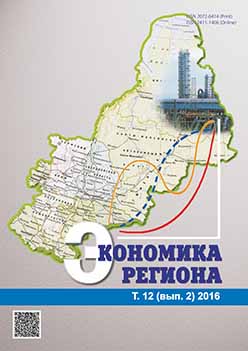Meaningfulness of Academic Migrants’ Education, Its Assessment and Modeling on It-based Technologies
Meaningfulness of Academic Migrants’ Education, Its Assessment and Modeling on It-based Technologies
Author(s): Tamara Vladimirovna Kuprina, Jaroslav Kultan, Tomáš Kozík, Svetlana Mikhaelovna MinasyanSubject(s): Economy
Published by: Институт экономики Уральского отделения Российской академии наук
Keywords: education; educational migration; modeling; virtual technologies; feedback; cost effective; incentive effect; Generation Z; cultural and cognitive characteristics; highly skilled migration;
Summary/Abstract: The article is devoted to the relevant problems of educational migration flows both in the real and virtual environment. The article discusses the positive and negative experience with virtual platforms in Russia and abroad. Particular attention is paid to the cultural and cognitive characteristics of the students belonging to the Generation Z, which requires the creation of entirely different instruments for implementing the educational process. The authors propose the method of creation, control and evaluation of feedback in the process of virtual educational migration using the latest IT- technologies that are utilized to create ultra-fast feedback and allow to bring new technologies into the learning process. In this scheme, the student is no longer a passive listener, but an active creator of new knowledge. The methodical research toolkit includes the mathematical, engineering, information methods of processing the results, including computer simulation. The testing of methodological tools was held at the University of Economics in Bratislava (Slovakia). These results confirm the possibility of the new method of providing feedback.This enable to improve the training quality of students, who are the members of the educational migration flows. Moreover, the training and examining may start at courses on adaptation, enabling to pre-determine the necessary competencies. In addition, it is cost-effective to limit the real presence of foreign lecturers at the host university to a certain minimum, followed by the support for virtual feedback. However, the use of IT- technologies is not a sufficient factor in improving the quality of education and the level of progress achieved by the trainees, but it can be a good helper in the course of the examination, automation of the selected methods of control, as it is a more individualized approach to learning.
Journal: Экономика региона
- Issue Year: 12/2016
- Issue No: 2
- Page Range: 485-498
- Page Count: 14
- Language: English

